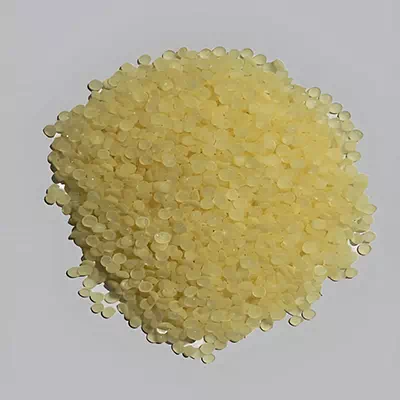Sales hotline
Sales hotline


Indicator Parameter value
CAS number: 64742-16-1
Softening point (ring and ball method): 40℃-120℃ (customizable)
Chroma (Gardner): ≤8 (light color type)
Acid value (mgKOH/g): ≤1.0
Viscosity (25℃, mPa·s): 200-5000 (adjusted with softening point)
Industry Pain Point Solutions:
Hot Melt Adhesive Field: Improve the initial adhesion of EVA-based hot melt adhesive (peel strength +30%), and reduce the gluing temperature by 10-15℃
Rubber Tires: As a tackifying resin, improve the processing fluidity of rubber compounds and reduce sidewall cracks caused by uneven carbon black dispersion
Road marking paint: Enhance the wear resistance of the coating (ASTM D968 test passed), and extend the weathering life by 2-3 years
Ink Connector: Improve pigment wettability and reduce ink flying in printing
Petroleum resin is named after its source, which is a petroleum derivative. It has low acid value, good miscibility, resistance to water, ethanol and chemicals, chemical stability to acids and alkalis, and good viscosity adjustment and thermal stability. Petroleum resin is generally not used alone, but used as a promoter, regulator, modifier and other resins.
Application
Other applications of hot melt adhesive: hot melt pressure sensitive adhesive, solvent pressure sensitive adhesive. Performance and role of petroleum resin in different industries:
A. Paints mainly use C9 petroleum resin, DCPD resin, C5/C9 copolymer resin with high softening point. Adding petroleum resin to paint can increase the gloss of paint, improve the adhesion, hardness, acid resistance and alkali resistance of paint film.
B. Rubber Rubber mainly uses C5 petroleum resin, C5/C9 copolymer resin and DCPD resin with low softening point. Such resins have good mutual solubility with natural rubber particles and have no great influence on the rubber vulcanization process. Adding petroleum resin to rubber can play the role of viscosity enhancement, reinforcement and softening. In particular, the addition of C5/C9 copolymer resin can not only increase the adhesion between particles, but also improve the adhesion between particles and cords, which is suitable for high-demand rubber products such as radial tires.
C. Adhesive industry Petroleum resin has good adhesion. Adding petroleum resin to adhesives and pressure-sensitive tapes can improve the adhesive's adhesion, acid resistance, alkali resistance and water resistance, and can effectively reduce production costs.
D. Ink industry Petroleum resin for ink, mainly high softening point C9 petroleum resin, DCPD resin. Adding petroleum resin to ink can play a role in color development, quick drying, brightening, and improving printing performance.
E. Paint industry Road signs and road marking paint, petroleum resin has good adhesion to concrete or asphalt pavement, and good wear resistance and water resistance, has good affinity with inorganic substances, is easy to apply, has good weather resistance, dries quickly, has high firmness, and can improve the physical and chemical properties of the layer, improve UV resistance and weather resistance. At present, petroleum resin road sign paint is gradually becoming mainstream, and demand is increasing year by year.
F. Other resins have a certain degree of unsaturation and can be used as paper sizing agents, plastic modifiers, etc. 5. Petroleum resin is a non-dangerous product. During transportation, it should be protected from sunlight and rain. It should not be transported together with self-igniting materials, strong oxidants, and strong acids. Petroleum resin should be stored in a ventilated, cool, and dry environment. The storage period is generally one year. After one year, it can still be used if it passes the inspection.
Sales hotline:

 Scan and consult wechat customer service
Scan and consult wechat customer service